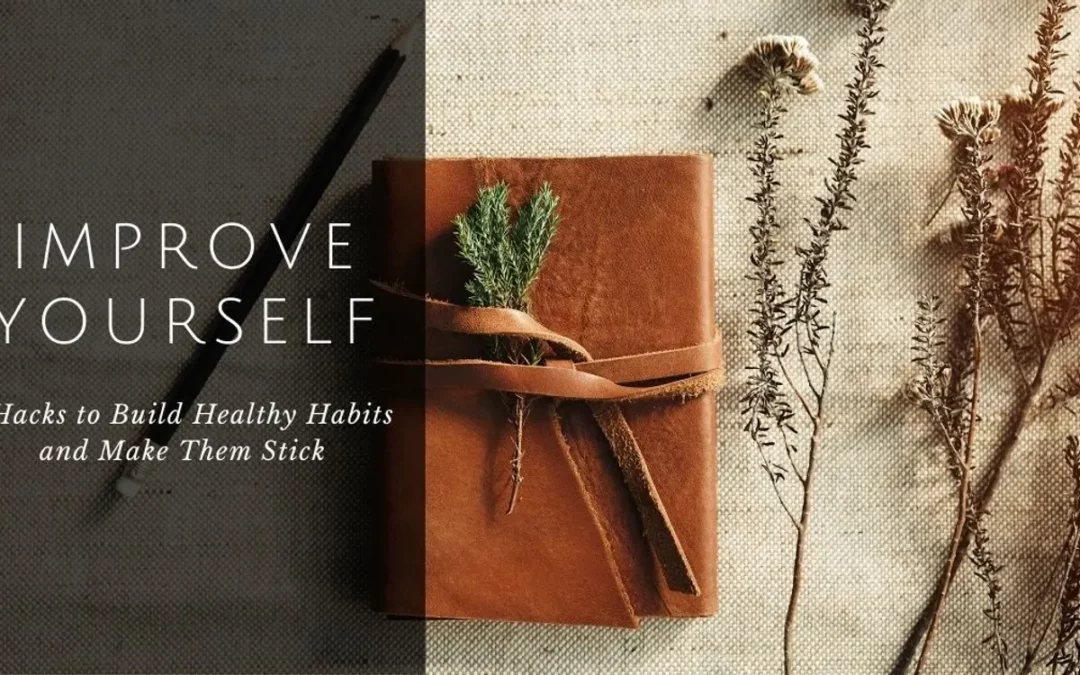Congratulations! You are already at step one of building a better lifestyle by creating healthy, sustainable habits. Whether a video inspired you or you remembered a forgotten resolution, you are on the right track!
While you might be motivated to achieve your goals, the idea of creating a new habit can be daunting at first. We know what we wish to change, what we should do and how to do it. However, following through with our actions seems to require a strong will. Experts say that this is because we are conditioned to want instant success, and building habits takes time and patience.
We expect to see positive results immediately, and without it, we slip back into our usual, unhealthy routines. We rely far too much on willpower and perseverance and bite off more than we can chew. As a result, we are overwhelmed by the new changes we need to incorporate daily. We then label it impossible to get done and shift to our old habits in despair.
The first step to building habits is to have a solid reason – understand your big ‘why’. Why do you want to change your practices? What is your desired outcome? Why is it important to you? Understanding your base motivation helps set your intention for the rest of your journey.
Understand Your Habits and Plan the Change
Habit formation is simplified into a continuous circle comprising three stages – Reminder, Routine, and Reward or repercussion. The reminder is the cue or external stimulus that triggers the behaviour. The routine is the action or habit itself that is repeated periodically. The reward or repercussion is the result of the act itself.
Understand what your triggers, routines and rewards are. Identify which part of habit formation is the easiest to change for you – whether it is avoiding the cue or changing the action. Once you understand what is working for you – build a system around it and replace the reward once you start following through your new habit formation.
Once you have built a pattern that works for you, it becomes much easier to follow through your resolutions. However, some additional hacks are always helpful when it comes to such challenges. Here are some hacks to help you build better habits:
1. Keep a Journal
Note down the habits that are bothering you. Understand your mood, behaviour and how often you can achieve your daily goals. This can help you assess how effective your plan of action is.
Habit and mood trackers are a great way to accomplish this. This will help you identify where you are on your path to progress. It will also give you a sense of fulfilment when you can physically see how far you have come.
Noting down your daily routine and plan of action also helps break down a complex challenge into multiple doable steps.
Don’t forget to start the day with a small note of gratitude to wake up and start afresh.
2. Avoid the Cue
Identify the trigger and try to avoid it as much as possible. This can help you avoid the action as well. If you cannot avoid the cue, train yourself mentally to either ignore it or look at it differently. Go on vacation; this can help you break the chain of bad habits and start anew!
3. Surround Yourself With Positive Notes
Keep reminders or posters with positive quotes that motivate you, in and around your house. Not only will this give you that extra push of inspiration for those bad days, but it will also remind you to be kind to yourself. It is essential to be in a healthy environment where you allow yourself to make mistakes and learn from them. Everything you read and surround yourself with always affects your subconscious.

4. Engage in Physical Exercise and Develop Hobbies
Engage in some physical activity for a minimum of 30 minutes daily. Burning calories releases dopamine and other feel-good hormones that uplift your mood and reduce stress. It could be anything – from cycling to Zumba, Yoga or even taking your dog for a walk.
Try taking some time out of your daily routine to indulge in something you love doing. Whether it is reading a good book, or watching reality television – reward yourself for building a better habit. It will give you something to look forward to, and an incentive to stick to your new habit formation plan!
5. Plan Ahead of Time
Plan out your day and sketch out a rough time table to follow. Try to focus on one goal at a time. Reduce a seemingly large problem into achievable goals to make it easier for you to execute.
Make a to-do list to get things done on time. Writing down things to do helps to look out for something, and keep track of the tasks. Categorise the things to do as A, B and C based on how important they are and prioritise accordingly.
To Sum It Up:
Humans are creatures of habit. Breaking bad habits, or forming new ones, can be a complicated and challenging process. It is essential to understand the base desire behind a habit formation to build a better lifestyle.
If you find yourself trapped in harmful habits, do not shy away from asking for help. Acknowledging and accepting the problem is the first step to the solution. Consult an expert medical professional from the comfort of your home on DocVita.
